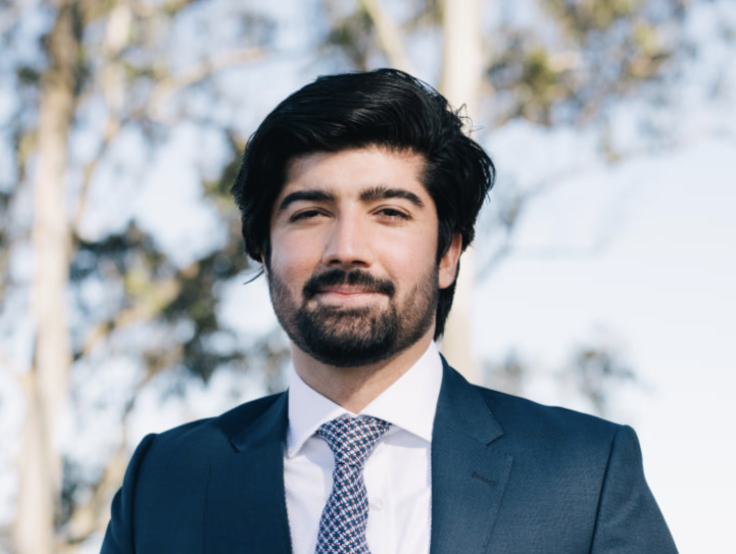How Can Philanthropy Galvanize Local Action for Global Climate Impact – A COP26 Session Recap
During COP26, the recent global climate summit held in Glasgow in November, several foundations announced new pledges in support of climate action. A number of foundations also came together to host a virtual roundtable on Philanthropy for Climate Change. Host foundations included Foundations Platform F20, Dafne, WINGS, Foundation Scotland, and the European Community Foundation Initiative, which came together to invite speakers from around the world to shed light on the role of philanthropy in connecting local and global dimensions and building sustainable solutions required for addressing our global crises effectively and holistically. The complete agenda and list of speakers can be found here and below is a recap of highlights from the session from instructional design intern for Candid Learning, Abdul Rafey.
My passion for the environment, climate, and purpose-driven work is what brought me to Candid. I have been serving as an instructional design intern for Candid Learning since last summer, and also helping GrantCraft with its forthcoming climate justice field guide for funders. As a graduate student based in Ireland, I realized I had the opportunity to attend COP26 in neighboring Scotland, and I was excited to deepen my knowledge and be able to experience a monumental forum representing parties from all around the world. The message I heard loud and clear from COP26 is actually an urgent warning that humanity still needs to do much more to change the trajectory we are on, and philanthropy has the power to shape a key part of the solution. During my participation in COP26, I attended a session specifically on key learnings for philanthropy, and what follows is a brief report on key lessons from the session.
The session I attended, #PhilanthropyForClimate, emphasized that one of the overlooked, yet highly impactful aspects of climate action is climate funding through philanthropic support of local efforts. The effective allocation of funds is a big challenge in the field of climate finance, and philanthropy can make it relatively easier by giving power to the people.
Panel Discussion
In the opening part of the session, the issue of climate philanthropy models was highlighted by multiple speakers. Izabella Teixeira, former Brazilian Minister of the Environment, emphasized a need to redefine our current models of philanthropy, urging that we bring together the private sector and the people most affected by climate change to mobilize resources available at the local level. Similarly, according to Benjamin Bellegy from WINGS, climate change is not a separate issue; if philanthropy is the love for humanity, we cannot ignore the existential threat that climate change poses.
Jason Anderson from ClimateWorks walked us through both scenarios of success and failure in tackling climate change. The great disparities between and within countries and how the natural world is changing dictates that we may be positioned to fail if we don’t change our approach to be less siloed. The intersectionality of issues like migration, healthcare, and poverty, all converge in climate change, so it’s important that philanthropy practice a more intersectional approach thinking about the impacts of climate change across funding portfolios.
Speakers also reflected that even though climate philanthropy was in the limelight at COP26, according to recent reports, only 2% of philanthropy funding goes to address climate change. There is a dire need for funders to better understand why and how they can make an impact on climate, how to learn from peers already engaged, and how to get started. For example, for funders looking for an entry point, Active Philanthropy’s Climate Mitigation Tool for philanthropy proves a great resource to get insight into the different ways funders can support projects in a specific issue area.
The speakers also shared inspirational examples of philanthropic work for climate change being done by organizations around the world. Liz McKeon from the IKEA Foundation shared that IKEA has been engaged in climate philanthropy for several years, giving out climate grants since 2014. The foundation recognizes that little funding goes into climate change; therefore, it supports a variety of groups focusing on climate issues that represent organizations large and small. A critical point is to understand that philanthropic legitimacy depends on how we show we care about the world. It is a public trust; therefore, she explained, “modern philanthropies must abide by modern values to stay credible.”
Similarly, Rizal Algamar from Filantropi Indonesia highlighted the efforts mobilized in Indonesia, where the climate sphere is being significantly transformed through protests, demonstrations, and collective action. Algamar shared that Indonesia extracted heavily from its natural assets to fuel the economy, indulging in a circle of unsustainable growth, and resulting in a system of exploitation. However, with growing awareness about climate change, Indonesia's situation is poised to change. There are pockets of initiatives and organizations that are becoming hubs of climate action, committed to working collectively with other regional actors to bring about change in the country. Indonesia is in a prominent position on the global stage, and it will take over the G20 presidency in 2022.
Emphasized throughout the session was the recurring theme that climate change has become an “all hands on deck” situation where the critical role of foundations and communities needs to be realized and further encouraged to achieve the necessary changes. The key message is that eventually, climate philanthropy is something that every foundation will need to address, either as part of a plan to effectively fight it or in reaction to a growing crisis as a result of staying on the sidelines.


